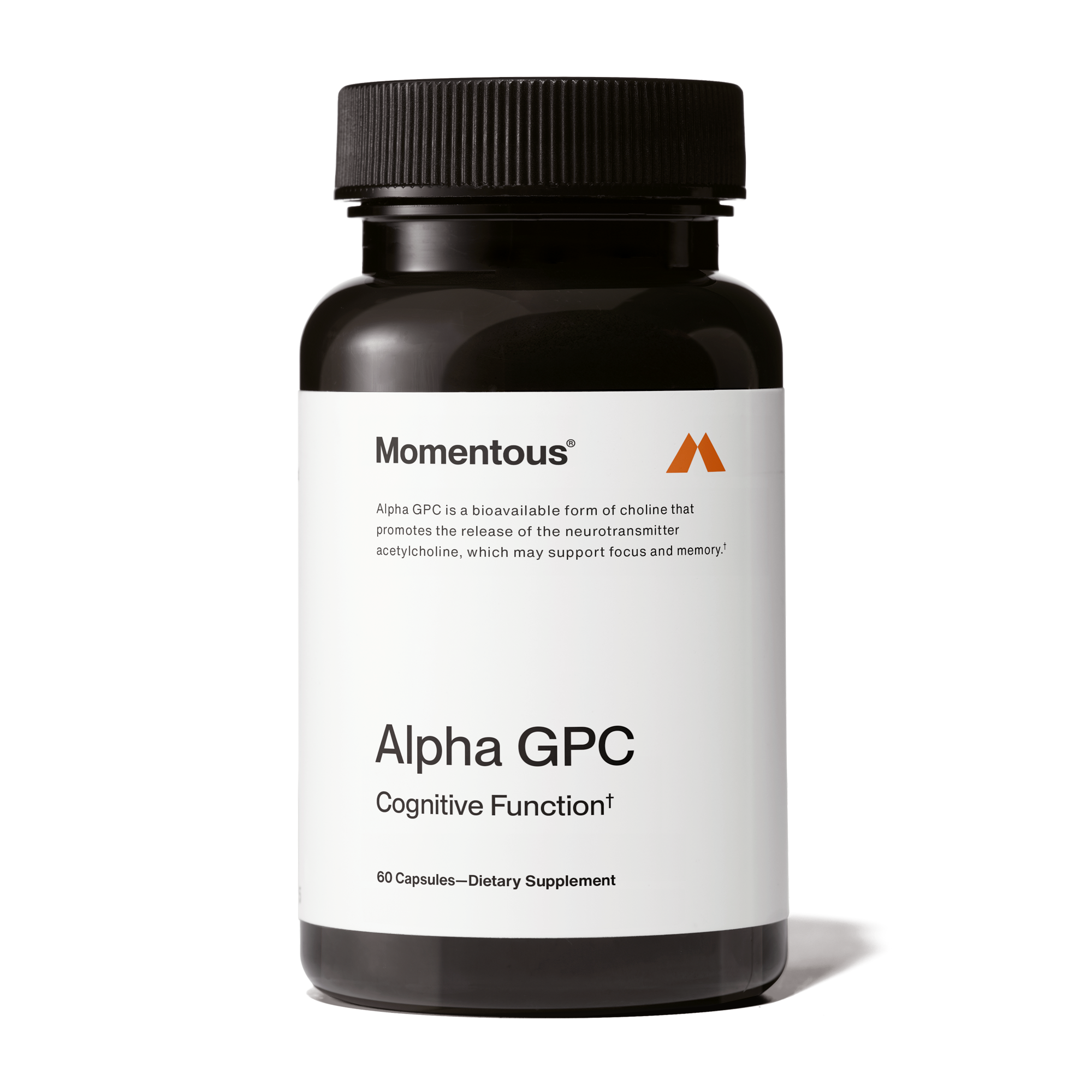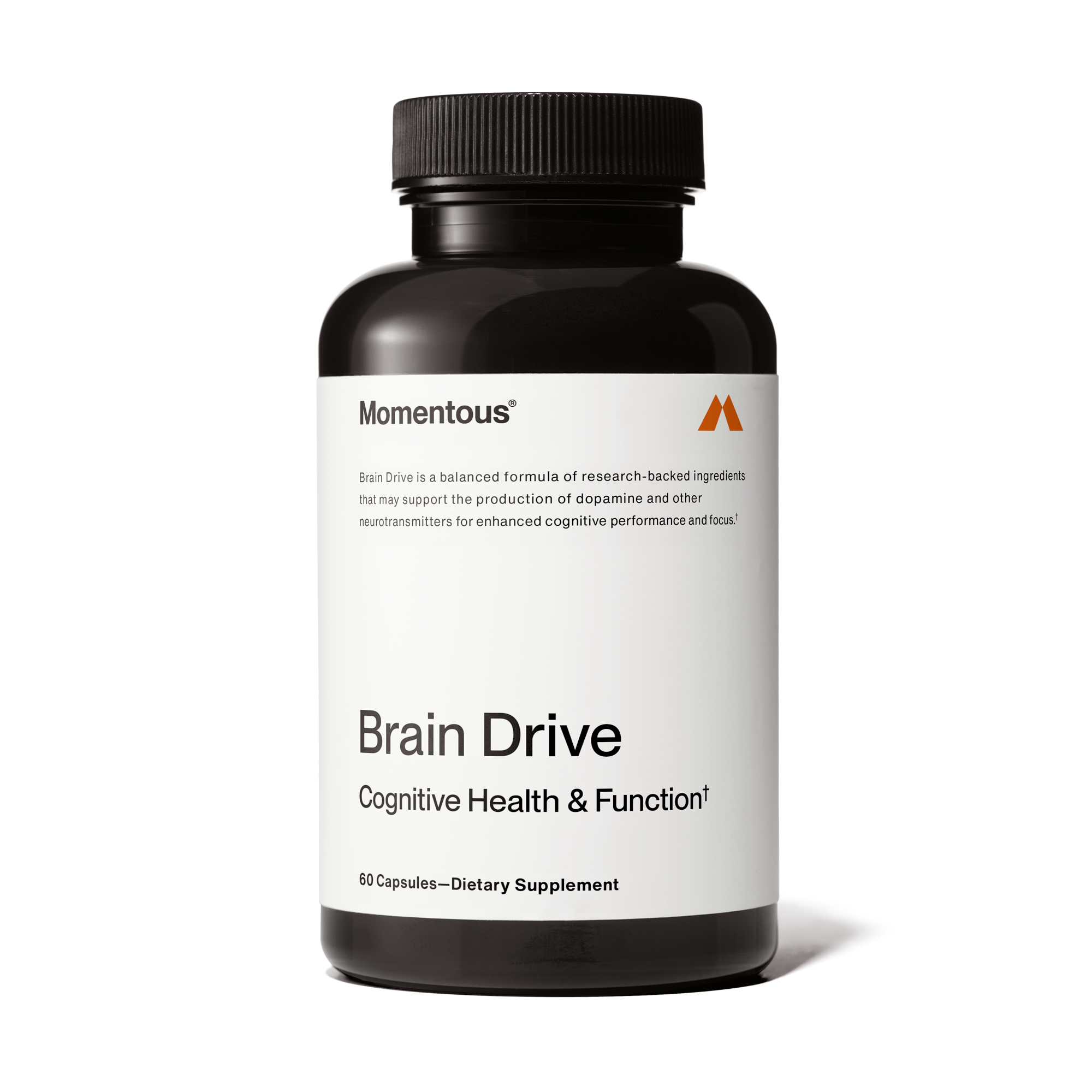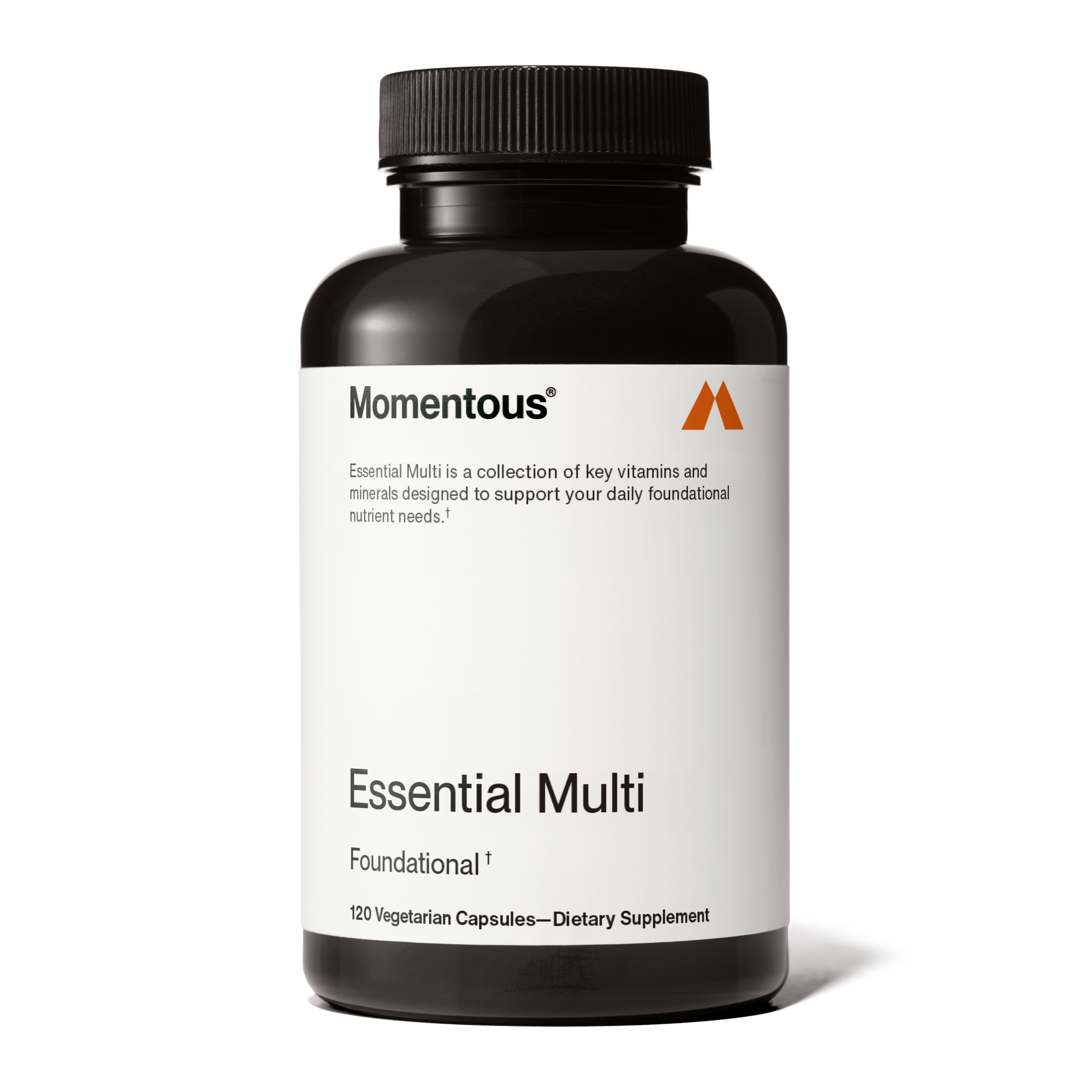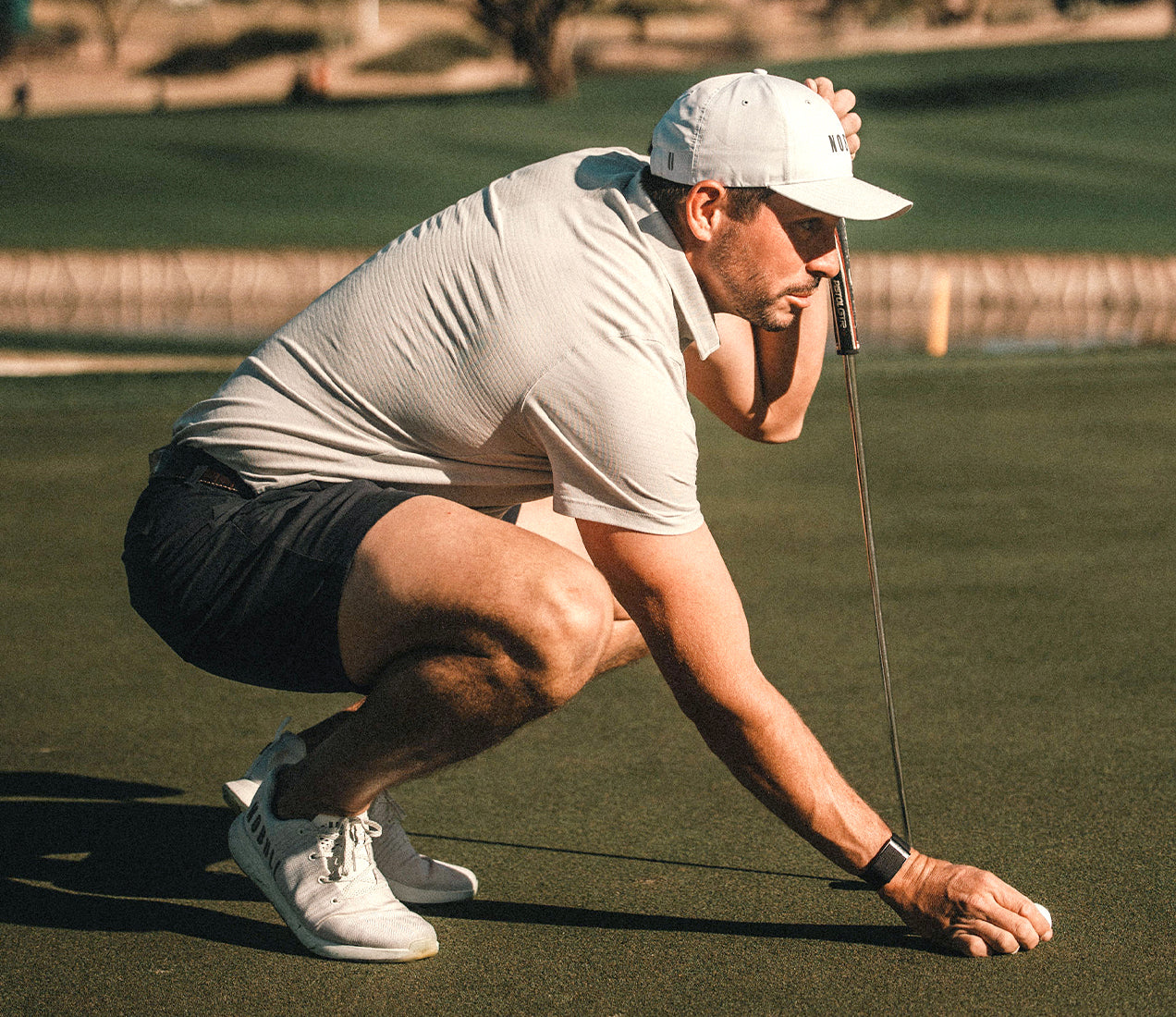Choline source that supports memory, focus + brain health
Daily nootropic blend for clarity, productivity + cognitive function
Whole-food–based formula to fill nutrient gaps for daily health
Everyone knows that you need water to survive - but for athletes searching for peak performance, the secrets to optimal hydration strategies can feel like wandering through a desert in search of an oasis. Let's dive into the science of hydration, go deep into the effects of dehydration, and discover why the perfect hydration plan will depend on the athlete.
First off, how does your body even know when you're thirsty? Scientists are still fully discovering how this process works, but research over the past several decades suggests that a highly specialized part of the brain called the organum vasculosum of the lamina terminalis (OVLT) is responsible for triggering that feeling of thirst. Researchers believe that NaCl-sensitive neurons in the OVLT can tell when the body is running low on water and whether you've had anything to drink recently.
Luckily, the body is generally pretty good at compensating when you haven't had enough water. It will automatically change your heart rate and blood pressure or tweak your kidney function to retain more water to keep itself safe.
But when you push your body to the max, as many athletes do, dehydration can seriously impact performance.
Research by Cheuvront et al. highlights the many effects of dehydration on endurance athletes, including:
- getting tired more quickly as your body works harder to cool itself;
- your heart working harder to pump blood;
- your muscles struggling to function properly;
- and even changes in central nervous system function resulting in less motivation and effort.
Depending on activity type and intensity as well as outdoor temperature and humidity, athletes can lose up to 8% of their body weight during exercise.
What does that mean for you? Good luck hitting new personal records if you haven't adequately hydrated.
Does everyone sweat the same amount?
First off, we sweat in order to cool our bodies when they get hot. The water evaporates off the skin, taking with it the heat from hard working muscles. This loss of fluid during physical activity is what can lead to dehydration. The problem is there's a lot of variation in how much each person sweats, even when other conditions like environment, intensity, and fitness level are the same. Some people will battle significant fluid and electrolyte loss, while others will finish the same activity feeling just fine.
To make matters even more confusing, how much one person sweats can be different from day to day, depending on a whole host of factors. During light exercise in cool or moderate environments, sweating rates might be as little as 100 mL/h, but during high-intensity exercise in a hot environment, some people can sweat at over 3,000 mL/h. If you're at the high-end, you're highly susceptible to fluid loss and impaired performance. It would be tough to drink enough during exercise to offset that much fluid loss, not to mention your body can naturally only get rid of a limited amount of fluid.
All these differences make it tough to know how much to drink and when to drink it.
Drinking water alone is a great first step to warding off dehydration. But, if you're looking for a performance edge, key nutrients are needed for proper hydration, including electrolytes and carbohydrates.
It's been shown that during prolonged physical activity, large amounts of salt can be lost in sweat. Restoring the sodium chloride lost during physical activity can help encourage voluntary fluid intake, protect blood plasma volumes, and reduce urine production – all physical responses that promote hydration. In addition, adding carbohydrates to your drink of choice can help the body more easily absorb water. We recommend Momentous Fuel.
So how much should you drink? The research suggests that for many physically active people, a fluid intake of approximately 1 L/h will usually provide sufficient water, carbohydrate, and electrolytes to limit dehydration to less than −2% body mass. This amount will also supply enough carbohydrates to provide an additional performance benefit.
The results of many decades of research make it clear that dehydration impairs your physical performance. Current practical guidelines encourage taking enough fluid during exercise to minimize the effects of dehydration. In situations where dehydration is tough to avoid (in the case of people who sweat a lot or participate in a long endurance race), you should always take steps to reduce the potential severity of dehydration. Not just by ingesting as much fluid as you can tolerate, but by taking advantage of any chance to reduce how much you're sweating. For example, reducing the intensity of your warm-up, staying in a cool breeze when possible, and seeking out shade any chance you get can significantly impact your endurance in the long term.
Now let’s go break a sweat.
1 Kinsman, B. J., Simmonds, S. S., Browning, K. N., Wenner, M. M., Farquhar, W. B., & Stocker, S. D. (2020). Integration of Hypernatremia and Angiotensin II by the Organum Vasculosum of the Lamina Terminalis Regulates Thirst. In The Journal of Neuroscience (Vol. 40, Issue 10, pp. 2069–2079). Society for Neuroscience. https://doi.org/10.1523/jneurosci.2208-19.2020
2 Cheuvront, S. N., Carter, R., III, & Sawka, M. N. (2003). Fluid Balance and Endurance Exercise Performance. In Current Sports Medicine Reports (Vol. 2, Issue 4, pp. 202–208). Ovid Technologies (Wolters Kluwer Health). https://doi.org/10.1249/00149619-200308000-00006
3 Baker, L. B., & Jeukendrup, A. E. (2014). Optimal Composition of Fluid‐Replacement Beverages. In Comprehensive Physiology (pp. 575–620). Wiley. https://doi.org/10.1002/cphy.c130014
4 Sharp, R. L. (2006). Role of Sodium in Fluid Homeostasis with Exercise. In Journal of the American College of Nutrition (Vol. 25, Issue sup3, pp. 231S-239S). Informa UK Limited. https://doi.org/10.1080/07315724.2006.10719572
5 Exercise and Fluid Replacement. (2007). In Medicine & Science in Sports & Exercise (Vol. 39, Issue 2, pp. 377–390). Ovid Technologies (Wolters Kluwer Health). https://doi.org/10.1249/mss.0b013e31802ca597
6 Rehrer, N. J., & Burke, L. M. (1996). Sweat losses during various sports. Australian Journal of Nutrition and Dietetics, 53(Supplement 4).
7 Costill, D. L. (1977). Sweating: its composition and effects on body fluids. Annals of the New York Academy of Sciences, 301(1), 160-174.
8 Passe, D. (2001). Physiological and psychological determinants of fluid intake. Sports Drinks: Basic and Practical Aspects.
9 Below, P. R., Mora-Rodriguez, R., Gonzalez-Alonso, J., & Coyle, E. F. (1995). Fluid and carbohydrate ingestion independently improve performance during 1 h of intense exercise. Medicine and science in sports and exercise, 27(2), 200-210.
10 Vrijens, D. M. J., & Rehrer, N. J. (1999). Sodium-free fluid ingestion decreases plasma sodium during exercise in the heat. Journal of Applied Physiology, 86(6), 1847-1851.
11 Cheuvront, S. N., Carter, R., III, & Sawka, M. N. (2003). Fluid Balance and Endurance Exercise Performance. In Current Sports Medicine Reports (Vol. 2, Issue 4, pp. 202–208). Ovid Technologies (Wolters Kluwer Health). https://doi.org/10.1249/00149619-200308000-00006
12 Below PR, Mora-Rodríguez R, González-Alonso J, Coyle EF. Fluid and carbohydrate ingestion independently improve performance during 1 h of intense exercise. Med Sci Sports Exerc. 1995 Feb;27(2):200-10. PMID: 7723643.
13 Sawka, M. N., Burke, L. M., Eichner, E. R., Maughan, R. J., Montain, S. J., & Stachenfeld, N. S. (2007). American College of Sports Medicine position stand. Exercise and fluid replacement. Medicine and science in sports and exercise, 39(2), 377-390.











